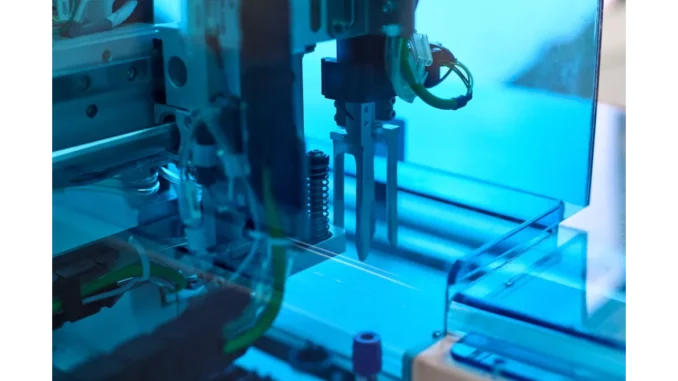
In a sunlit corner of a bustling café in Dana Point, I had the privilege of engaging with Dr. Emily Thompson, an esteemed independent health technology analyst. Our dialogue centred on the recent announcement from Second Opinion Expert regarding their innovative patent. This conversation provided a wealth of insight into how artificial intelligence (AI) is poised to transform medical diagnostics, with the promise of enhancing patient outcomes and reducing healthcare costs.
Dr. Thompson, who possesses an extensive background in medical informatics, was enthusiastic to explore the topic. “Second Opinion Expert is not merely riding the wave of artificial intelligence,” she asserted, “they are actively shaping its application within the healthcare sector. Their patented method addresses a significant need in our current system.” The patent in question revolves around generating medical opinions through AI, marking a pivotal advancement in the realm of medical diagnostics. Dr. Thompson envisioned a future where obtaining a second opinion no longer entails lengthy waits or the inconvenience of travelling to a specialist. This technology has the capability to swiftly and accurately process patient records, diagnostic tests, and clinical data, delivering high-quality medical opinions that both patients and healthcare providers can rely on.
The potential impact on patient outcomes is substantial. Many patients seek second opinions when faced with critical health decisions. The ability to quickly access expert insights can lead to earlier interventions and improved health outcomes, which is particularly vital in situations where time is of the essence, such as cancer diagnoses or managing complex chronic conditions. Dr. Thompson was especially enthusiastic about the technology’s potential to democratise access to healthcare. She noted, “Geographical barriers often impede access to quality healthcare. Not everyone resides near a top-tier medical facility or specialist. By leveraging AI, Second Opinion Expert is dismantling these barriers, making expert medical opinions accessible to anyone with an internet connection.”
Naturally, our conversation shifted to the cost implications of such technology. Dr. Thompson acknowledged the importance of reducing healthcare costs, stating, “Healthcare systems worldwide are grappling with rising expenses. By offering a cost-effective method for obtaining medical opinions, this technology could alleviate some of that financial burden. It’s about delivering smarter, not just cheaper, healthcare.” However, she emphasised that the success of this technology hinges on its integration within existing healthcare frameworks. “There’s a learning curve,” she conceded. “Both doctors and patients need to trust and comprehend the technology. It’s not about replacing human expertise but augmenting it. The AI can handle the data analysis, allowing doctors to focus on addressing their patients’ unique needs.”
Our discussion took a broader perspective, considering the wider implications of AI in healthcare. Dr. Thompson described the patent as a component of a larger puzzle, highlighting that the future of medicine is rooted in personalised care, where treatment plans are tailored to individual patients. AI, in conjunction with advancements in genomics and electronic medical records, is propelling us closer to this reality. Before concluding our dialogue, I asked Dr. Thompson about the future developments she foresees. She anticipated greater integration of AI in remote patient monitoring and telemedicine. The capability to track patient health in real-time and adjust treatment plans accordingly represents a significant breakthrough. “It’s an exciting time to be involved in healthcare technology,” she enthused.
As we parted ways, I was left with a renewed sense of optimism regarding the future of medical care. The filing of this patent by Second Opinion Expert signifies a pivotal moment in the ongoing evolution of healthcare delivery. It embodies AI’s potential not only to revolutionise medical diagnostics but to do so in a manner that is accessible, efficient, and ultimately life-saving. Technological innovation in healthcare is not merely about keeping pace with advancements but about harnessing these tools to enhance lives. As Dr. Thompson eloquently put it, “Technology should serve humanity. In healthcare, this means utilising every tool at our disposal to ensure patients receive the best possible care.”
The journey of AI in medicine is only just beginning, and with pioneers like Second Opinion Expert leading the way, the future appears promising indeed.


Be the first to comment